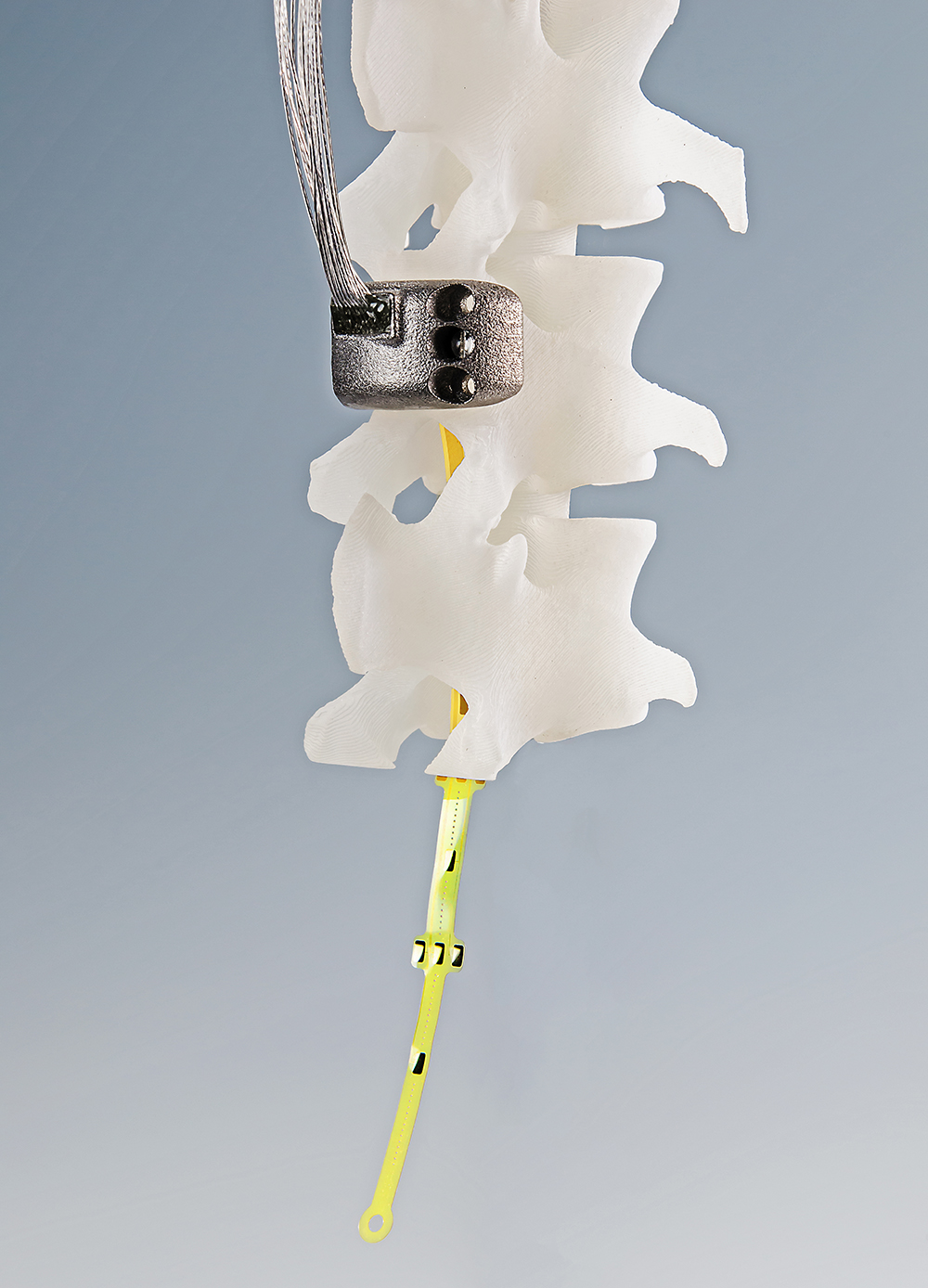Improvement of information density by increasing the number of electrodes
Multielectrode probes are used in brain research for simultaneous, locally resolved signal recording and stimulation. They play an important role in the investigation of structural causes and implications of neurodegenerative disorders, such as Parkinson's disease. In this context in the past years we have built up a considerable know-how in the realization of multichannel microelectrode probes. Our probes are applied with great success in the preclinical validation of novel diagnosis and therapeutic approaches in neurosurgery and neuroprosthetics.
“We increase the sensor density of your electrodes for more differentiated measurements”
Rigid probes with a diameter of only a few 100 µm and lengths of one to several ten centimeters are part of our portfolio. They can be equipped at the probe tip with a linear array of up to 32 separately addressable electrodes. Our microelectrode probes are wet-chemically sterilizable as well as by autoclaving and, due to their robustness, they can be used multiple times in trials on animal models. An integration of microcannulas, e.g. for the supply of drugs or the extraction of tissue fluid, is also feasible. Compared to existing silicon-based solutions our electrode probes are unbreakable under typical conditions of use. We realize our highly flexible, chronically implantable multielectrode arrays on the basis of photostructurable materials. In this case the carrier structure is a highly biocompatible polymer, the electrodes and supply lines are typically made from gold. The electrode surfaces which are in contact with tissue could also be coated with platinum or other electrode materials as desired by the customer. Furthermore, direct integration of electronic components on the array, for instance allowing signal pre-processing or multiplexing is possible. With our custom designed, application-specific multisite electrode arrays we lay the foundations for the exploration of novel therapeutic approaches towards an improved treatment of neurodegenerative diseases and neurologic movement disorders.
Our existing portfolio of multielectrode probes covers:
Rigid probes:
- 6-32 electrodes + central electrode,
- length of 2-34 cm,
- diameter of 340-500 µm according to the number of electrodes,
- unbreakable under typical conditions of use,
- autoclavable or wet-chemically sterilizable,
- suitable for multiple use in animal studies.
Flexible microelectrode arrays:
- Number and arrangement of the electrodes can be tailored according to the customer’s specifications,
- options available for interfacing with surgical wires, head plugs or implantable stimulator devices,
- electrode material: gold, platinum as well as others on customer’s request,
- minimum thickness approx. 20 µm,
- chronically implantable,
- sterilizable, e.g. wet or dry with ethylene oxide.

 Fraunhofer Institute for Microengineering and Microsystems IMM
Fraunhofer Institute for Microengineering and Microsystems IMM